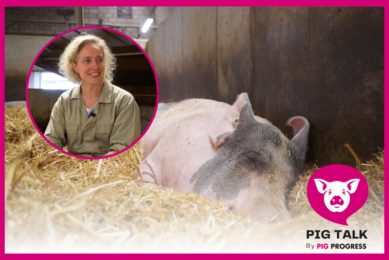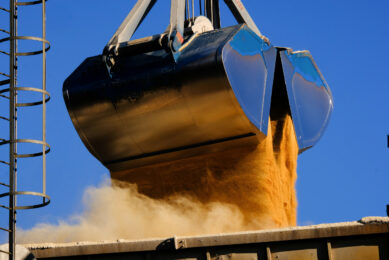People: French vets award prize to Yannig le Treut (Lallemand) on biogenic amine in liquid pig feed study

Dr. Yannig le Treut, DVM, was awarded the Patrick Pommier Short Communication First Prize on December 2, 2011 at the Annual Congress of the French Swine Veterinarians Association (AFMVP).
It is the second year running Dr. le Treut of Lallemand Animal Nutrition, has won this award.
The winning study, entitled “Biogenic Amines: myth or reality?”, scrutinised the presence of biogenic amines in pig liquid feed in 33 commercial pig farms.
The survey indicated that biogenic amines are an underestimated feed safety issue in swine nutrition with many implications for feed intake, mortality etc., while also sugggesting ways how to address the threat of biogenic amines.
Le Treut was praised for his ability to always explore new fields of investigation with originality and scientific rigor. He replied, “I am honored by this prize and the recognition of these new areas of research: at a time when antibiotic usage in swine production is challenged, I am particularly pleased that such innovative topics were worthy of interest and to see that new preventive approaches could be considered and recognized by pig vets.”
Biogenic amines are toxic compounds resulting from the degradation of amino acids in feed by certain microorganisms (enterobacteria, coliforms…).
In swine nutrition, little is known about the presence and significance of these substances in liquid feed and their impact on pig performance and health.
The main findings of the on-farm survey (33 French farms in total), conducted between 2009-2010 were that:
- Biogenic amine contamination of liquid pig feed is a reality in farms.
- Contamination varies greatly from farm-to-farm, but overall, farmers using industrial complete feed experience less contamination and less variability in contamination. Farmers home mixing showed more contamination, especially with liquid by-products.
- Wet corn is a major source of biogenic amines, due to the three consecutive fermentation steps undergone by this material.
- Blood analysis confirmed that biogenic amines pass into the blood through the gut.
- The liquid feeding equipment (tank, distribution circuits etc.) is an important source of contamination, which is almost certainly due to the presence of biofilms.
The study, that analysed 10 different substances, designed a predictive model needing only 3 substances (putrescine, cadaverin, tyramine) to assess the magnitude of contamination. This model may potentially lower the costs of analysis.
Some recommendations from the study on limiting the growth of biogenic amines in pig feed include:
- Extra care with the cleanliness of the equipments, distribution circuits and fermentation tanks.
- Keeping the fermentation of wet corn silage, by-products, the pre-fermented feed and fermented feed under control.
- Employing the probiotic bacteria Pedioccoccus acidilactici MA 18/5M (Bactocell), associated with thorough disinfection and equipment cleaning, which the authors mention brought down the level of biogenic amines contamination in farms, improving feed intake and digestive troubles (diarrheas) and mortality.
The Patrick Pommier Prize is supported by the Technical Center of Animal Production and Agrofoods (CTPA).
The jury, consisting of the whole assembly – 120 vets specialized in swine medicine, voted on selection of 19 short communications.











